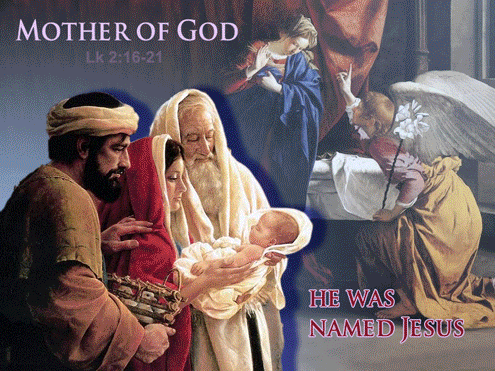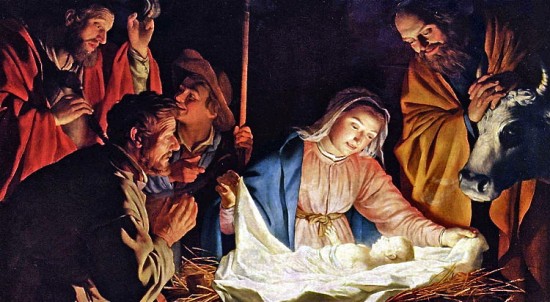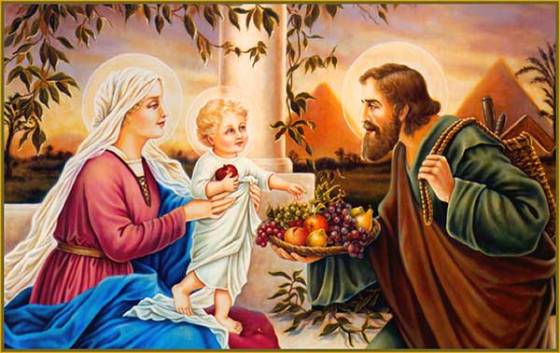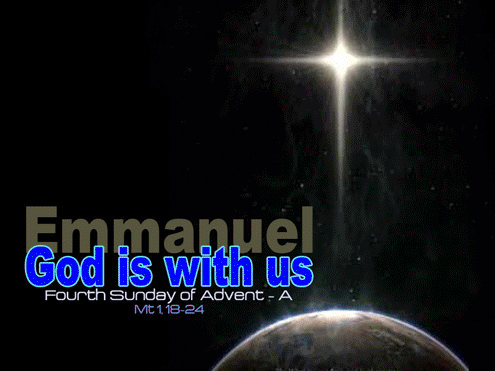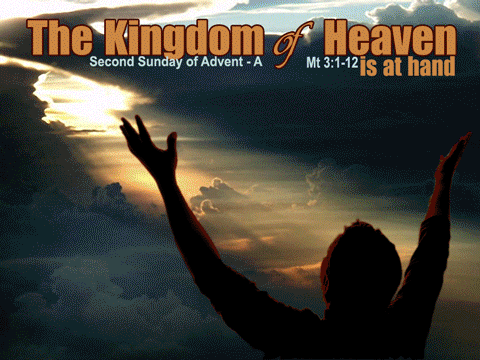MARY, MOTHER OF GOD
(A biblical refection on THE SOLEMNITY OF MARY, MOTHER OF GOD – Octave Day of Christmas - Sunday, 1 January 2017)
Gospel Reading: Luke 2:16-21
First Reading: Numbers 6:22-27; Psalms: Psalm 67:2-3,5-6,8; Second Reading: Galatians 4:4-7
The Scripture Text
And they went with haste, and found Mary and Joseph, and the babe lying in a manger. And when they saw it they made known the saying which had been told them concerning this Child; and all who heard it wondered at what the shepherds told them. But Mary kept all these things, pondering them in her heart. And the shepherds returned, glorifying and praising God for all they had heard and seen, as it had been told them.
And at the end of eight days when He was circumcised, He was called Jesus, the name given by the angel before He was conceived in the womb. (Luke 2:16-21 RSV)
“Now faith is the assurance of things hoped for, the conviction of things not seen” (Hebrews 11:1). To nobody is all this more readily applicable than to the one who was the first to believe in Christ, our mother in faith, as well as Christ’s earthly mother, the Blessed Virgin Mary. There are many of us who, in our approach to Mary, place her on a lasting pedestal, and look on her after the manner of the three apostles gazing on the transfigured Christ. All too often we imagine her as the Madonna of the Christmas card, serene, immobile, seated forever in the immaculately clean stable of golden straw and glistening snow outside, with adoring angels hovering overhead. Such a figure is simply not real. For the plain fact is that Mary, on earth, knew neither triumph nor heavenly spectacle. No one has ever lived, suffered, died in such simplicity, in such deep unawareness of her own supernatural dignity.
What evidence do we have for this, you may ask? And the answer is there in the few short sayings attributed to her in the Gospels. For, in her own eyes, Mary was the handmaid, the servant of the Lord, depending entirely on God’s will, and sustained by God’s goodness. The fathers of the Vatican II Council acknowledged this when they stated that Mary stands out among the poor and the humble of the Lord, who confidently await and receive salvation from God (Lumen Gentium 55). Indeed, in the first four centuries of the Church, Christian writers placed greater emphasis on the simple faith of Mary at the Annunciation, than on her divine motherhood. The Virgin believed, and in her faith conceived, or as St. Augustine strikingly wrote, “She first conceived Jesus in her heart, before conceiving Him in her womb.”
Mary, who we venerate as the Mother of God (Greek: Theotokos, God’s bearer) wants above all to be our guide and counselor in this area of faith. She wants to beget faith in us, to be “our mother in faith”. That is why, in the Gospel of Saint John, she is present at the beginning and the end of Christ’s public life. She was there at the wedding feast at Cana (John 2:1-11), fully believing before Jesus had worked a single miracle. It was only after the changing of water into wine that Jesus’ disciples began to believe in Him (see John 2:11). In fact it was Mary herself who brought about this very sign by her request to Jesus to intervene, “Do whatever He tells you” (John 2:5), she told the attendants, words which only one who believed totally in the power of Jesus could utter. Cana was the first of the signs recorded by Saint John, in order to bring us, as it did His first disciples, to believe in Jesus. But as to the Mother of Jesus, she is represented as already believing before it.
Significantly, John’s Gospel also is the only one to record the presence of Mary at Calvary (John 19:25-17). When all the signs and wonders of the public mission of Christ seemed, in the estimation of many, to have been a delusion, and all but one of His carefully chosen apostles had deserted Him, His mother was still there witnessing Him draw His last breath, and still believing. For Mary’s faith in her Son had never been founded on the evidence of astounding miracles or visions, but rather on a complete, absolute, childlike trust in the mysterious ways of God our Father. Nor did her role as Mother on earth cease when her Son departed this world. For in His dying moments, Jesus has ensured its continuation when He said to John, “Behold, your mother” (John 19:27). Here Jesus reveals that His own natural mother will henceforth be the mother of the disciple also, the disciple who was a figure of all of Jesus’ true disciples, you and I included. At that moment Mary assumed a new role in God’s plan of salvation for the human race, that of “spiritual mother” to us all.
Prayer: Holy Spirit, come into my life deeply and powerfully this year. Fill me with Jesus and His words as You filled Mary. Help me to live and proclaim the Gospel of Jesus Christ. Amen.
Jakarta, 31 December 2016
A Christian Pilgrim
